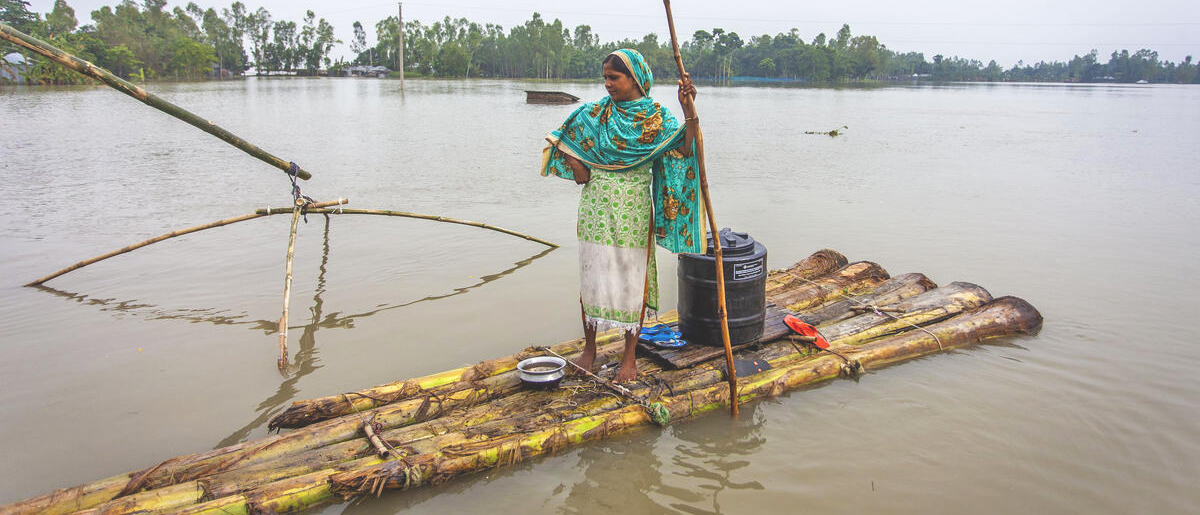Vital investment to protect farming communities along the Jamuna River

The Jamuna River in Bangladesh is one of the largest and most dynamic rivers in the world, providing a lifeline to millions of people. Yet, flooding and river erosion – exacerbated by climate change – displaces people living in riverside farming communities every year, pushing them into poverty.
The Government of Bangladesh and its people, with financing from the World Bank and support from the FAO Investment Centre, havelaunched a pioneering project for the Jamuna River, combining investments in river structures, dynamic navigation, and disaster risk management financing.
This holistic project approach covers all four phases of disaster management — mitigation, preparedness, response and recovery — to effectively deal with extreme weather events.
Jozimo Santos Rocha, Officer-in-Charge of the Asia and the Pacific Service and Senior Agribusiness Officer at the FAO Investment Centre said, “The aim of this project is to directly benefit local farming communities by preventing displacement, focusing on the economics of sustainable and climate-resilient practices for riverbank protection. The FAO Investment Centre supported the Government of Bangladesh and World Bank with the development of this initiative.”
Securing livelihoods and preventing displacement
The new project aims to enhance climate resilience and environmental protection without altering the river's natural flow.
To mitigate climate change impacts, the project will invest in infrastructure and institutions to help reduce the risk of riverbank erosion and flooding. This will help increase climate resilience and protect communities.
"Sustainable and climate resilient management of the Jamuna River will bring enormous economic benefits for Bangladesh and its people,” said Abdoulaye Seck, World Bank Country Director for Bangladesh and Bhutan. “The World Bank is helping Bangladesh to develop and implement a multi-phased project, starting with a first phase of USD 102 million, designed to protect sections of riverbanks and improve navigation.”
The FAO Investment Centre supported the Government of Bangladesh and the World Bank in developing these solutions. FAO focused on preparing financing arrangements and contributed towards emissions analysis.
Innovative and sustainable approaches
Improving access to Jamuna’s navigation channels with adequate depth to accommodate large cargo vessels year-round is a key objective – together with the development of climate-adaptive riverbank reinforcements and River Information Services – boosting the Ministry of Shipping’s capacity for preparedness and response to extreme weather events.
More resilient and reliable navigation channels will also provide safer and more affordable transportation for communities, significantly improving regional connectivity and trade. Extensive economic and social benefits are anticipated.
Approximately 100,000 people will potentially benefit from switching to passenger ferries and away from buses – thereby reducing greenhouse gas emissions.
In a linked initiative, approximately 1.2 million people in communities along the Jamuna river are set to be covered under an insurance scheme to reduce their risk from disaster and displacement.
When insurance triggers are activated, these insured people will receive digital payments.
More than one-third of the beneficiaries will be women, highlighting the project's commitment to gender inclusion.
Additionally, around 120,000 people are expected to benefit from a community protection fund, further boosting community resilience.
By leveraging technical expertise and innovative solutions, the project aims to ensure the Jamuna River continues to serve as a crucial lifeline, while mitigating the adverse impacts of climate change.
